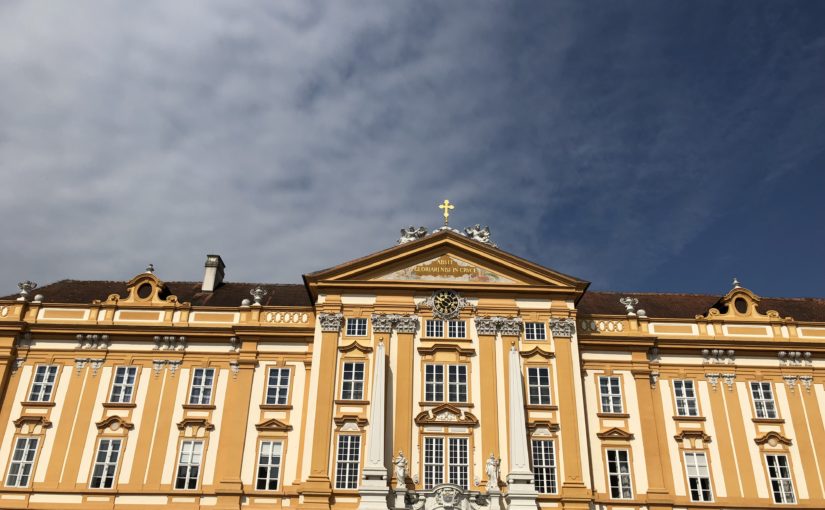My course is becoming increasingly more interesting with every week, as we gain people from all over the world. This past week a 16 year old boy from Italy joined our class, and we started off the week by discussing parental leave from the workplace. I had never realized the awesome laws that Germany has for parental leave, which include 3 full paid years split between both parents. For example, each parent can switch off each month taking care of the child, and still be compensated at work. This is federal a law here. It is absolutely insane and amazing, because there is no federal law for any paternal leave in the U.S., not even for the mother. Only three states in the U.S., California, New Jersey, and Rhode Island, provide some type of leave for mothers. For the most part, in the U.S. it is completely dependant on the company to determine whether or not they offer parental leave. It was interesting discussing these with the other students, because I learned how Italy, South Korea, and Russia compare, and their laws are still more giving to parents than U.S. laws.
I found this particular topic interesting, because I study Neuroscience and Behavior at Notre Dame, a science that has a great focus on the early development of people. In german, I was able to use the knowledge I have gained from my psychology and anthropology classes at ND to explain how significant it is for the parents to be around during the early years of a childhood. I hope to pursue medicine after studying at Notre Dame, potentially in Germany, so this was a great way to discuss my blooming interests in a language that I may need in the coming years to earn a graduate degree.
 Later on in the week, I had a weekend trip planned to Vienna, Austria (Wien, Österreich in German). I looked forward to visiting this country because the primary language spoken there is also German! It was another place I could practice my speaking and reading skills. While in Vienna, I visited Schönbrunn Palace and Gardens, a former imperial summer residence that is one of the most important architectural, cultural, and historical monuments in the Austria. It had amazing views of the entire city of Vienna and one of the most vibrant and fruitful gardens I have ever seen. I also wandered the inner city of Vienna and spotted some amazing buildings and churches, including the Burgtheater, one of the most historically significant theaters in Europe. Later that evening, I happened upon a woman who sold me a ticket to Macbeth in that theater for 5 euros because her friend had gotten sick. The rendition of Macbeth was completely in German without supertitles, and only featured three actors. It was definitely one of the most interesting productions I have witnessed, and their interpretation excluded the final two acts of Macbeth and relied heavily on sound, lighting, and visual stimulation to capture the themes of the play.
Later on in the week, I had a weekend trip planned to Vienna, Austria (Wien, Österreich in German). I looked forward to visiting this country because the primary language spoken there is also German! It was another place I could practice my speaking and reading skills. While in Vienna, I visited Schönbrunn Palace and Gardens, a former imperial summer residence that is one of the most important architectural, cultural, and historical monuments in the Austria. It had amazing views of the entire city of Vienna and one of the most vibrant and fruitful gardens I have ever seen. I also wandered the inner city of Vienna and spotted some amazing buildings and churches, including the Burgtheater, one of the most historically significant theaters in Europe. Later that evening, I happened upon a woman who sold me a ticket to Macbeth in that theater for 5 euros because her friend had gotten sick. The rendition of Macbeth was completely in German without supertitles, and only featured three actors. It was definitely one of the most interesting productions I have witnessed, and their interpretation excluded the final two acts of Macbeth and relied heavily on sound, lighting, and visual stimulation to capture the themes of the play.


The following day I traveled west of Vienna to a town named Melk, Austria. This is one of the oldest cities in Austria, and it possesses some amazing sites, including the Melk Abbey which I toured. This is a benedictine abbey, which houses the remains of many of Austria’s first ruling dynasty. It contains many precious relics of the Catholic Church, and is staged high above ground so that views of the village and Danube river are breathtaking. After touring the Melk Abbey, I took a boat ride down the Danube river, seeing more beautiful green villages set in the mountains of Austria. This trip gave me so much insight as to how other German speaking countries can have such different cultures, even though they are connected to other countries by language.
